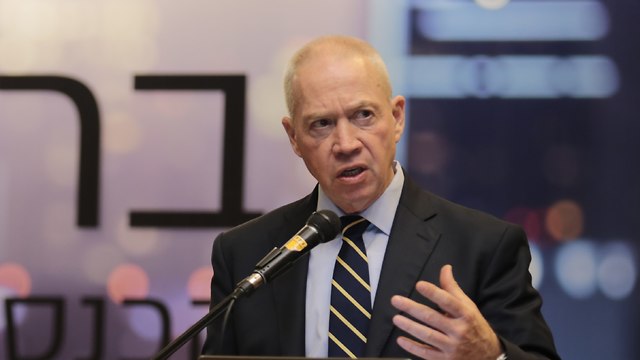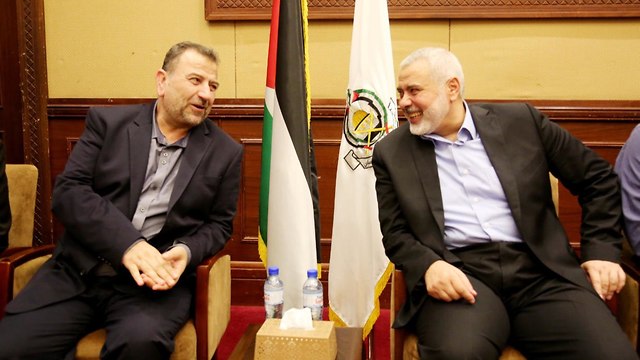
Galant: Syrian gov't will also have to answer for Iranian presence
Minister Yoav Galant, a former IDF general, dismisses assassination of Syrian scientist as 'another' death, saying 'he sounds like not a positive person'; questions Russians' ability to keep Iran away from Israel-Syria border.
Israel will not allow Iran to establish an army in Syria, Construction Minister Yoav Galant said Sunday in the wake of the assassination of a Syrian missile scientist.
"There's a war raging in Syria, a lot of sides are involved and there are a lot of interests. There have already been 600,000 deaths, apparently there's another one," said Galant, a former IDF major general and a member of the Security Cabinet.
He noted he had read "the description in the paper" of Dr. Aziz Asber, the scientist who was killed in a car bomb outside his home in Hama, adding, "he sounds like not a positive person to me."
Repeating government line, Galant said Israel's interest is "to not allow the establishment of an Iranian army in Syria, and of course not allow for another front, Hezbollah II, in the Golan Heights. We won't allow Syrian territory to become a springboard for game-changing weapons."
Galant also questioned the Russians' ability to keep the Iranians away from the Syria-Israel border. "We know how (the Iranians) took over Lebanon using Hezbollah in the early 1980s—through processes of instructors, trainers, humanitarian aid and so on. The method is similar, and therefore we will not allow anything of the kind," he said.
"But we have a great advantage here—we will demand the Syrians to take responsibility. There's a Syrian army and separation agreements from 1974 that need to be kept. There will be no Iranian presence in Syria, and if there is—we'll demand answers from the Syrian government as well," Galant explained.
Turning his sights to the south, Galant explained Israel has pushed Hamas into a corner, essentially forcing it to seek a ceasefire agreement.
"Since Operation Cast Lead about a decade ago, we've been shutting down all of its options: the sea is blocked; Sinai is closing down; the tunnels are being blocked, and by the end of 2019 I estimate there will be no more attack tunnels in the direction of Israel; the rockets are being thwarted by Iron Dome—most of them anyway; and they are now using terrorism in the form of incendiary balloons and Palestinian blood being spilled on the border, which is meant to prompt international outcry. We're shutting down all of these things," he elaborated.
"This distress is leading Hamas to recalculate its moves, and if we get quiet as a result of that—both with regards to terrorism and with regards to our soldiers in captivity, even if they're not alive—we certainly need to adopt such a thing, because our interest is not to fight Gaza," Galant said.
Nevertheless, Galant questioned the ceasefire agreement's ability to last very long. "Since, unfortunately, when you live in this area where many elements—including Hamas and Hezbollah—don't recognize our right to exist here, the achievement that determines the political results is the military achievement. Meaning, the lower you knock the enemy in the battle field, the longer period of quiet you get in the political arena," he opined.
He insisted the Israeli government does not negotiate with Hamas, a terror organization. "Talking is one thing and passing messages through a third party is another. These are things that have happened and continue to happen all the time everywhere. We have to recognize the fact Hamas is the ruler in the Gaza Strip, even if we don't like it," he said.












